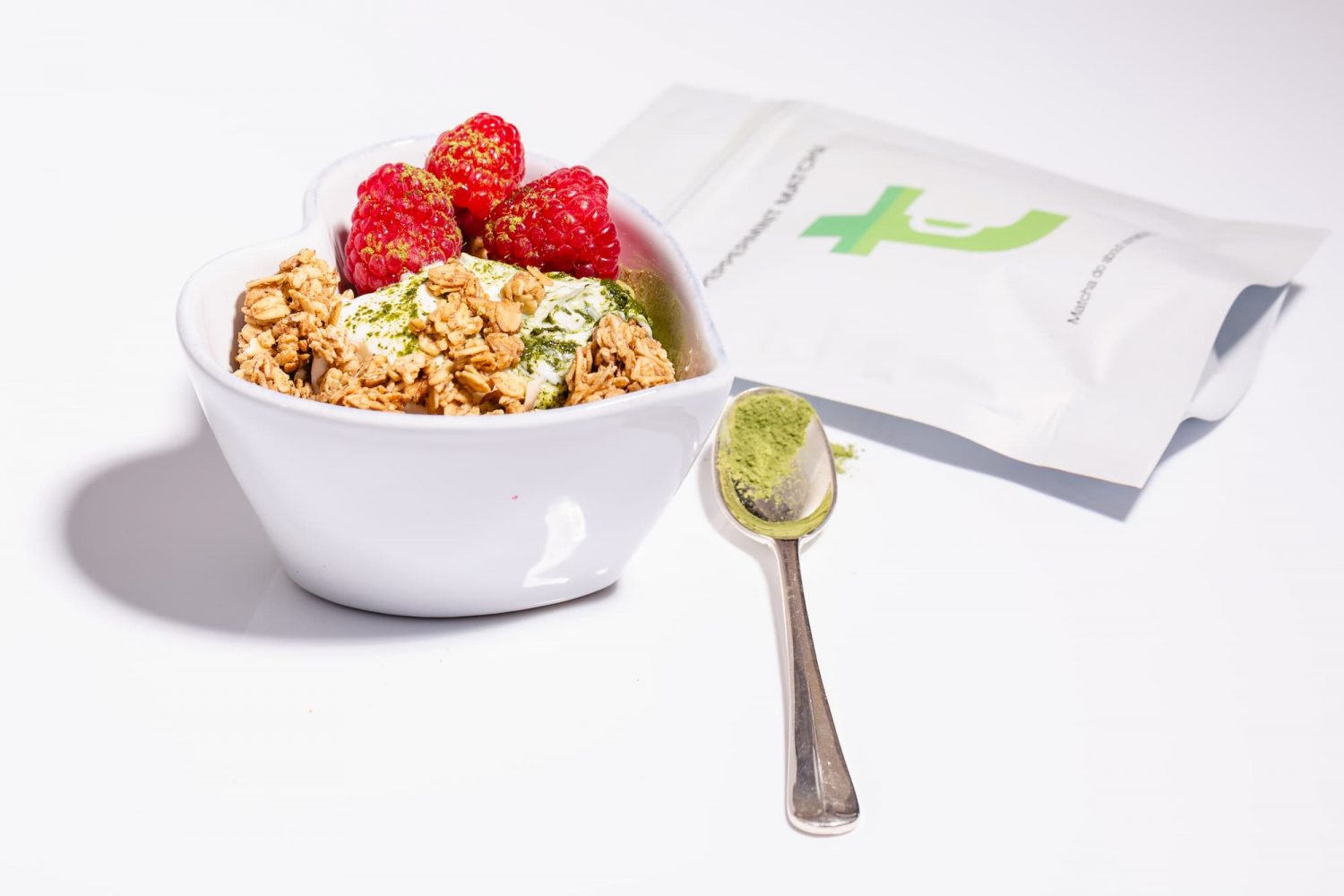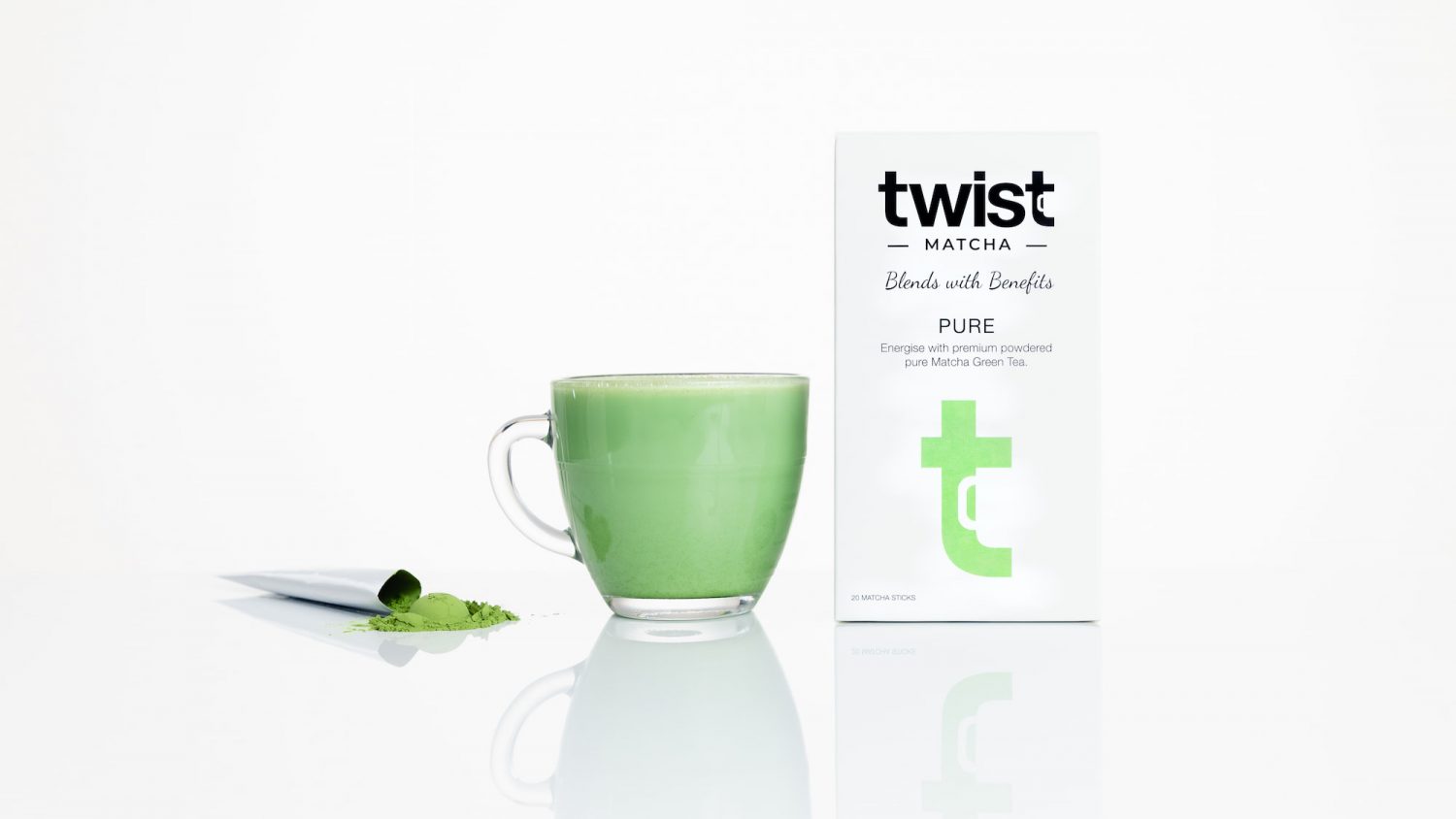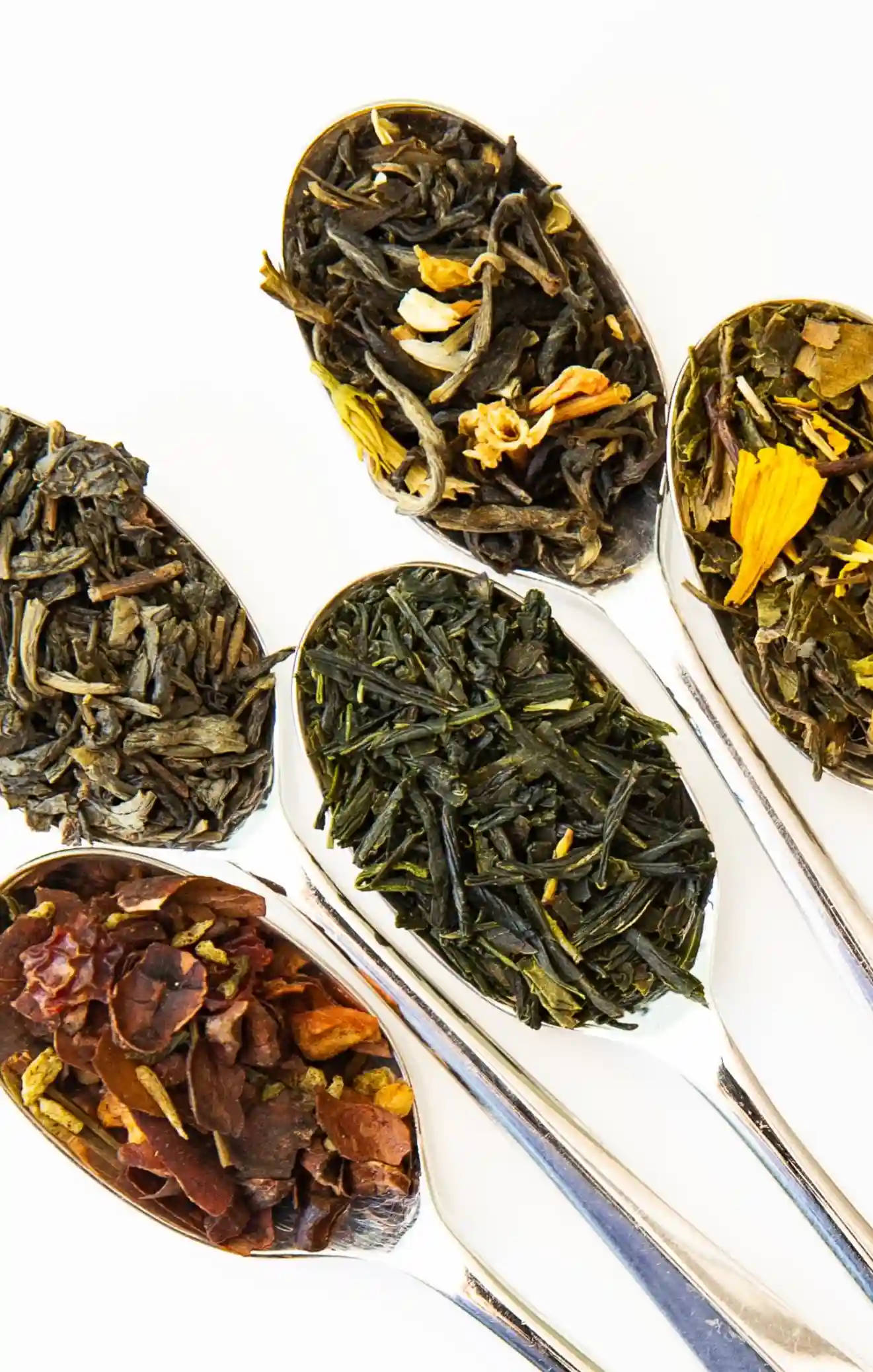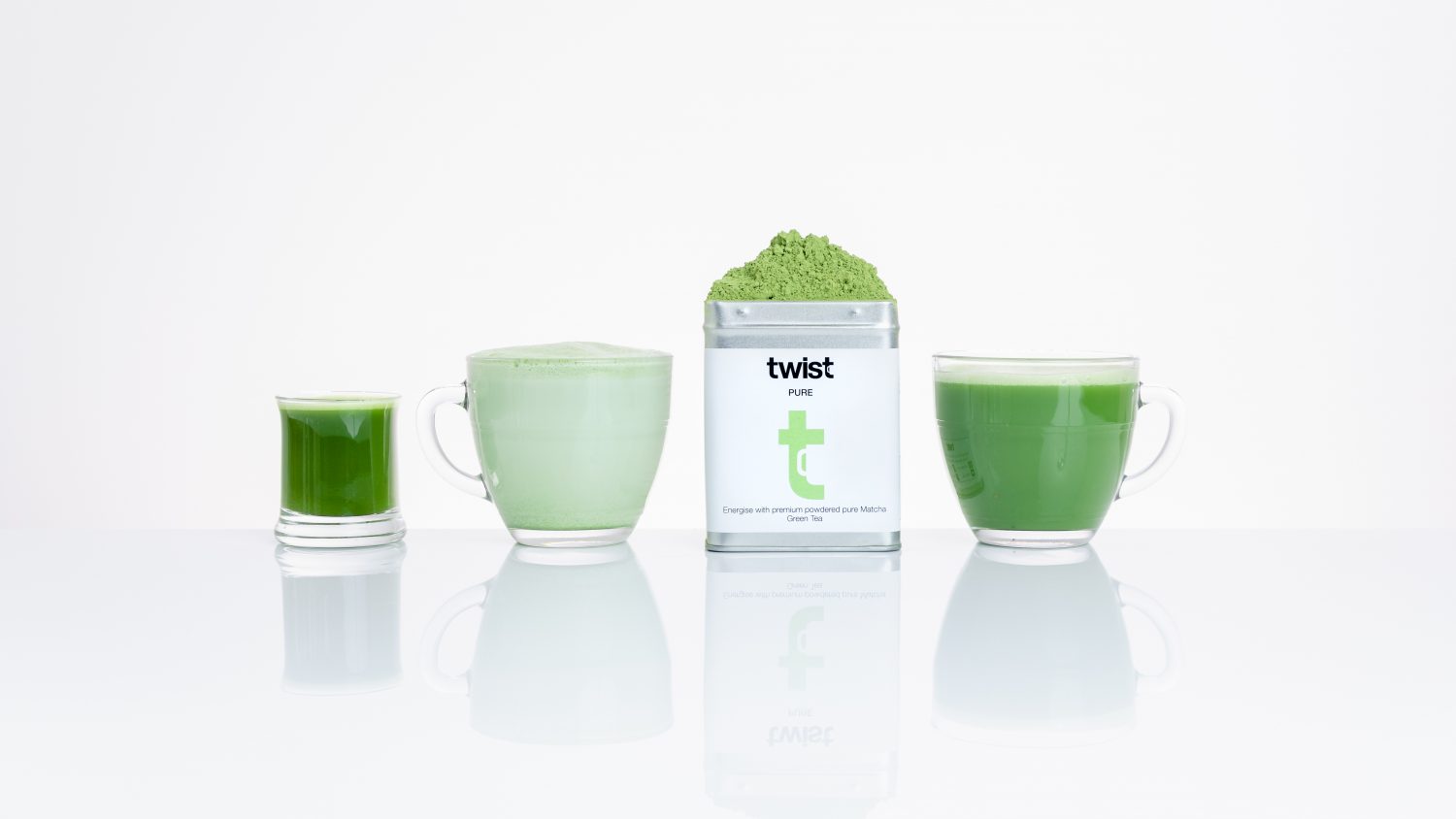Are you looking for a natural and delicious way to enhance your wellness and embrace a healthier lifestyle? Look no further than matcha green tea. This unique and aromatic form of powdered green tea is not only a delightful beverage but also offers a multitude of potential health benefits that can transform your well-being. From boosting energy to supporting metabolism and enhancing immune health, matcha green tea is a powerful addition to your daily routine. But what makes matcha so special? Let’s delve into the fascinating world of matcha and explore its incredible benefits for a healthier you.
Key Takeaways:
- Matcha green tea is a unique and aromatic form of powdered green tea.
- It offers a variety of potential health benefits, including boosting energy, supporting metabolism, and enhancing immune health.
- Matcha is rich in antioxidants, which can help protect against cellular damage and promote overall health.
- It provides cognitive support, aids in detoxification, and can also aid in weight loss.
- Incorporating matcha into your daily routine can be done through various delicious preparations.
What is Matcha and How is it Made?
Matcha is a type of powdered green tea that is made from finely ground Japanese green tea leaves. Unlike regular green tea, which is steeped and then discarded, matcha is prepared by whisking the powder into hot water, allowing you to consume the entire leaf and benefit from its nutrient-rich properties.
The production process of matcha involves several key steps that contribute to its unique characteristics. The tea plants, usually shade-grown for a few weeks prior to harvest, undergo a careful cultivation process to enhance their flavour and promote the development of chlorophyll.
- The leaves are hand-picked at the peak of their freshness, usually in the spring.
- The selected leaves are steamed to prevent fermentation and preserve their vibrant green colour.
- A meticulous process of drying and deveining the leaves follows, ensuring optimal texture and flavour.
- The dried leaves are then ground into a fine powder using traditional granite stone mills, giving matcha its characteristic smooth and velvety texture.
The vibrant green colour of matcha is a result of the high concentration of chlorophyll in the leaves. It is this careful production process that sets matcha apart from other powdered green teas, resulting in a higher level of antioxidants and beneficial compounds. Further to this, it is common to mix pure matcha powder with different flavourings to enhance the experience of consuming.
The Benefits of Matcha’s Production Process
Matcha’s unique production process enhances its qualities, making it more than just a regular cup of tea. The shade-grown leaves accumulate higher levels of chlorophyll, which not only give matcha its vibrant green colour but also contribute to its antioxidant-rich nature. The finely ground powder allows for a more concentrated infusion of nutrients, ensuring that every sip of matcha is packed with goodness.
“The production process of matcha results in higher concentrations of antioxidants and other beneficial compounds compared to regular green tea.” – Dr. Jane Wilson, Tea Expert
Matcha’s production process not only enhances its nutritional value but also leads to its unique and aromatic flavour profile. The careful cultivation, harvesting, and preparation methods are what make matcha a true delicacy for tea enthusiasts.
| Benefits of Matcha’s Production Process | Details |
|---|---|
| Higher concentration of antioxidants | Matcha contains significantly more antioxidants than regular green tea due to its unique production process. |
| Rich in chlorophyll | The shade-grown leaves of matcha have higher levels of chlorophyll, contributing to its vibrant green colour and detoxifying properties. |
| Enhanced flavour | The combination of carefully selected leaves, steaming, and stone grinding results in a unique, aromatic, and smooth flavour profile. |
The production process plays a crucial role in creating matcha’s character, making it a beloved beverage known for its distinct taste, vibrant colour, and numerous health benefits.
Potential Health Benefits of Matcha
Matcha offers a wide range of potential health benefits. Its rich antioxidant properties make it a powerful beverage for promoting overall health and well-being. Here are some of the key benefits of incorporating matcha into your daily routine:
- The abundance of antioxidants in matcha helps protect against cellular damage and reduce the risk of chronic diseases like heart disease and cancer.
- Matcha provides cognitive support by enhancing mental clarity, focus, and alertness. The combination of amino acid L-theanine and caffeine in matcha promotes a state of calm attentiveness without the jitters associated with coffee.
- Matcha supports detoxification by aiding the body in eliminating harmful toxins and heavy metals. It contains chlorophyll, which helps cleanse the body and support liver health.
- Matcha contributes to metabolic support and weight loss by boosting metabolism and promoting fat oxidation. The catechins in matcha are believed to aid in weight management by increasing energy expenditure.
- Research suggests that matcha may possess cancer-fighting properties. The high concentration of antioxidants in matcha, particularly epigallocatechin gallate (EGCG), has been shown to inhibit cancer cell growth and reduce the risk of certain types of cancer.
By incorporating matcha into your daily routine, you can take advantage of these potential health benefits and enjoy a beverage that not only tastes delicious but also supports your well-being.
| Health Benefit | Description |
|---|---|
| Antioxidant Properties | Matcha is rich in antioxidants that help protect against cellular damage and promote overall health. |
| Cognitive Support | Matcha enhances mental clarity, focus, and alertness, thanks to the combination of L-theanine and caffeine. |
| Detoxification | Matcha aids in the elimination of harmful toxins from the body and supports liver health with its chlorophyll content. |
| Metabolic Support | Matcha boosts metabolism and promotes fat oxidation, making it beneficial for weight management. |
| Cancer-Fighting Properties | Research suggests that matcha’s high antioxidant concentration, particularly EGCG, may help inhibit cancer cell growth. |
Antioxidant-Rich Superfood
Matcha is widely recognised for its exceptional antioxidant content, particularly its abundance of catechins. These potent compounds play a crucial role in safeguarding the body against free radicals. Free radicals are harmful substances that can cause cellular damage and contribute to a range of diseases. By neutralising these free radicals, matcha’s antioxidants help reduce oxidative stress and support overall health and well-being.
The high concentration of antioxidants found in matcha is attributed to its unique cultivation and preparation methods. Matcha tea leaves are shade-grown during the final weeks before harvesting, prompting increased chlorophyll production and higher catechin levels. The leaves are then hand-selected, steamed, dried, and finely ground, resulting in a vibrant green powder that retains an exceptional antioxidant profile.
“Matcha is a powerhouse of antioxidants, providing a natural defence against the harmful effects of free radicals. Its impressive properties make it the go-to superfood for individuals seeking to enhance their health and well-being.”
Regularly consuming matcha can help counteract the damaging effects of oxidative stress on the body. Oxidative stress occurs when there is an imbalance between free radicals and antioxidants, leading to potential harm to cells and tissues. By incorporating matcha into your diet, you can bolster your antioxidant defences and support your body’s ability to combat oxidative stress.
In addition to its antioxidant content, matcha offers a host of other health benefits, including cognitive support, detoxification, metabolic support, and potential cancer-fighting properties. Its versatile nature allows for various ways to enjoy its numerous advantages, from traditionally whisking it into hot water to incorporating it into lattes, smoothies, and baked goods.
Cognitive Support and Alert-Calmness
Matcha green tea is not only known for its delicious taste but also for its ability to provide cognitive support and enhance alertness and concentration. It contains unique compounds like L-theanine and caffeine that work together to promote mental clarity and a state of “alert calmness”.
L-theanine, an amino acid found in matcha, has been found to have a calming effect on the brain without causing drowsiness. It stimulates the production of alpha waves, which are associated with relaxation, mental alertness, and improved focus. By increasing alpha wave activity, L-theanine promotes a state of calm alertness, making it easier to concentrate and stay focused on tasks.
The combination of L-theanine and caffeine in matcha offers a unique synergy. While caffeine is typically known for its stimulant effects, when combined with L-theanine, it produces a more balanced and sustained level of alertness without the jitters or crashes commonly associated with caffeine consumption.
The L-theanine and caffeine in matcha work together to support cognitive function and enhance mental performance. They help improve attention span, memory, and reaction time, allowing individuals to stay sharp and focused throughout the day.
Matcha green tea provides a natural and sustainable source of cognitive support, enhancing alertness, concentration, and overall mental performance.
Comparing L-theanine and Caffeine Levels in Matcha and Other Sources
| Source | L-theanine Content (mg/g) | Caffeine Content (mg/g) |
|---|---|---|
| Matcha Green Tea | 2-4 | 25-35 |
| Regular Green Tea | 2-4 | 10-20 |
| Coffee | Negligible | 10-15 |
This table compares the levels of L-theanine and caffeine in matcha green tea, regular green tea, and coffee. It is evident that matcha contains higher concentrations of both L-theanine and caffeine compared to other sources. This unique combination contributes to its cognitive support properties and balanced mental stimulation.
By incorporating matcha into your daily routine, you can enjoy the benefits of improved alertness, concentration, and mental clarity in a natural and sustainable way. Have a matcha latte this morning and see what difference it makes!

Detoxification and Cleansing
Matcha green tea is not only a delicious beverage but also a powerful tool for detoxification and cleansing the body. Its unique composition provides essential support to the liver, one of the body’s primary detoxification organs. Matcha aids in the elimination of toxins and promotes overall liver health.
One of the key components of matcha that contributes to detoxification is chlorophyll. Chlorophyll is a pigment found in plants that gives them their vibrant green colour. In matcha, chlorophyll plays a vital role in cleansing the body by promoting the elimination of harmful toxins.
When consumed, matcha increases the production of hemoglobin and enzymes that support liver function. This helps the liver in effectively processing and eliminating toxins from the body. By supporting liver health, matcha facilitates the body’s natural detoxification process, contributing to overall well-being.
The Power of Chlorophyll
“Chlorophyll is a potent detoxifier that aids in the elimination of toxins from the body, promoting better health and vitality.”
Furthermore, matcha’s high concentration of chlorophyll also provides benefits beyond detoxification. Chlorophyll has been shown to have anti-inflammatory properties and can help cleanse the digestive system, aiding in the elimination of waste and promoting a healthy gut.
| Detoxification Benefits of Matcha | Liver Health Benefits of Matcha |
|---|---|
|
|
Matcha green tea’s detoxification and cleansing properties make it an excellent addition to a healthy lifestyle. By incorporating matcha into your daily routine, you can support your body’s natural detoxification processes and help maintain optimal liver health.
Metabolic Support and Weight Loss
Matcha is not only a delicious beverage but also a valuable ally for those seeking to support their metabolism and achieve their weight loss goals. Its unique composition offers numerous benefits for energy expenditure, fat oxidation, and overall weight management.
One of the key factors that sets matcha apart is its ability to increase metabolism. Studies have shown that matcha can enhance energy expenditure, which means that your body burns more calories throughout the day. This boost in metabolic rate can contribute to weight loss by creating a calorie deficit.
Furthermore, matcha promotes fat oxidation, the process by which the body breaks down fat cells to be used as energy. The catechins found in matcha are believed to stimulate the body’s fat-burning mechanisms, aiding in the reduction of stored fat and further supporting weight loss efforts.
Unlike other weight loss aids, matcha provides a natural and sustainable solution. It contains a moderate amount of caffeine, which can help increase energy levels and promote physical activity, resulting in more calories burned. Additionally, matcha is rich in antioxidants, which can support overall health and well-being during the weight loss journey.
To make the most of matcha’s metabolic support and weight loss benefits, it is recommended to incorporate it into a balanced diet and exercise routine. By enjoying a cup of matcha as part of your morning routine or before a workout, you can harness its potential to boost metabolism, increase fat oxidation, and enhance the effectiveness of your weight management efforts.
Matcha is a versatile ingredient that can be enjoyed in various forms. From traditional matcha tea to matcha lattes, smoothies, and even baked goods, there are plenty of delicious ways to incorporate matcha into your daily routine while benefiting from its metabolic support and weight loss properties.
Key Takeaways:
- Matcha supports metabolism and aids in weight loss by increasing energy expenditure.
- It promotes fat oxidation, helping the body burn stored fat for energy.
- Incorporating matcha into a balanced diet and exercise routine can enhance the effectiveness of weight management efforts.
- Matcha provides a natural and sustainable approach to weight loss with its moderate caffeine content and rich antioxidant profile.
Cancer-Fighting Properties
Matcha green tea contains compounds called catechins, with special attention on epigallocatechin gallate (EGCG), that have shown promising anti-cancer effects in various cell culture and animal studies. These compounds have demonstrated the potential to inhibit cancer cell growth and migration, thereby reducing the risk of certain types of cancer.
EGCG, in particular, has been extensively studied for its anti-cancer properties. It is a potent antioxidant that helps neutralise harmful free radicals and protect the body’s cells from damage. The consumption of matcha green tea, rich in catechins and EGCG, may contribute to overall cancer prevention and support overall health.
| Type of Cancer | Effects of Matcha |
|---|---|
| Breast Cancer | Research suggests that matcha may help inhibit the growth and spread of breast cancer cells. |
| Colorectal Cancer | Studies indicate that the catechins in matcha can assist in reducing the risk of colorectal cancer. |
| Lung Cancer | Some studies have shown that matcha consumption is associated with a decreased risk of developing lung cancer. |
| Prostate Cancer | Preliminary research suggests that matcha may help inhibit the growth of prostate cancer cells. |
While more research is needed to fully understand the mechanisms and potential of matcha’s anti-cancer effects, incorporating matcha green tea into a well-balanced diet and healthy lifestyle may be a valuable addition to overall cancer prevention strategies.
Incorporating Matcha into Your Daily Routine
There are various ways to incorporate matcha into your daily routine. Whether you enjoy a comforting cup of matcha tea or prefer the indulgence of a matcha latte, there are countless recipes to explore that allow you to savour the health benefits of matcha in delicious ways.
If you’re a fan of traditional preparations, whisking matcha powder with hot water is the perfect way to enjoy a warm and invigorating matcha tea. The process of whisking creates a frothy texture and enhances the vibrant green colour of the tea. By sipping on a cup of matcha tea, you can experience the full potential of matcha’s antioxidant properties and feel rejuvenated throughout the day.
For those who appreciate a creamier and more indulgent beverage, matcha lattes are a popular choice. Combining matcha powder with steamed milk and a touch of sweetener creates a delightful and comforting drink that can be enjoyed at any time. Matcha lattes not only provide the health benefits of matcha but also offer a soothing and satisfying experience.
If you’re feeling creative in the kitchen, incorporating matcha into recipes can add a vibrant and nutritious twist to your favourite dishes. Matcha can be used to make smoothies, baked goods, and even savoury recipes. From matcha pancakes to matcha cookies, the possibilities are endless when it comes to experimenting with matcha in your culinary creations.
Matcha Recipes
To inspire your matcha culinary adventures, here are some popular matcha recipes:
2. Matcha Chia Pudding: Mix matcha powder with chia seeds, coconut milk, and a touch of honey or maple syrup for a healthy and filling breakfast or snack.
3. Matcha Energy Bites: Combine matcha powder with dates, nuts, and coconut flakes to create delicious and nutritious energy bites that are perfect for on-the-go snacking.
4. Matcha Overnight Oats: Stir matcha powder into your favourite overnight oats recipe for a vibrant and energising breakfast option.
5. Matcha Avocado Toast: Spread mashed avocado on whole grain toast and sprinkle with matcha powder for a unique and nutritious twist on a classic.
By exploring different matcha recipes, you can add a boost of antioxidants and other health benefits to your diet while indulging in a variety of tasty and satisfying treats.
Considerations and Possible Side Effects
While matcha green tea offers numerous health benefits, it’s important to be aware of certain considerations and potential side effects. Understanding these factors can help you make informed decisions about incorporating matcha into your daily routine.
Caffeine Content in Matcha
Matcha contains caffeine, which can affect individuals differently. Some people may be more sensitive to caffeine and experience negative effects such as jitteriness, increased heart rate, or difficulty in sleeping. It is important to be mindful of your caffeine intake, especially if you are sensitive to its effects. If you’re unsure about your tolerance to caffeine, it’s a good idea to start with a small amount of matcha and monitor how it makes you feel.
Medication Interactions
It is essential to consider any potential interactions between matcha and medications you may be taking. Certain medications, such as blood thinners or medications for high blood pressure, may interact with matcha. These interactions can impact the effectiveness of the medications or cause unwanted side effects. It’s crucial to consult with your healthcare provider before consuming matcha if you are taking any medications to ensure there are no potential interactions.
Pregnancy and Breastfeeding
If you are pregnant or breastfeeding, it is recommended to consult with your healthcare provider before consuming matcha. While matcha is generally considered safe when consumed in moderation, it’s important to ensure it is suitable for your specific circumstances. Your healthcare provider can provide guidance and help you make an informed decision based on your individual needs.
Medical Conditions
Individuals with certain medical conditions should exercise with caution when consuming matcha. For example, if you have kidney stones or digestive issues, the high caffeine content in matcha may not be suitable for you. It’s important to consult with your healthcare provider if you have any underlying medical conditions to determine if matcha is safe for you to consume.
Overall, while matcha offers numerous potential health benefits, it is important to consider these factors and consult with your healthcare provider if you have any concerns or questions. Taking these precautions will ensure that matcha is incorporated into your routine safely and effectively.
| Potential Side Effects and Considerations | Recommendations |
|---|---|
| Caffeine content | Be mindful of your caffeine intake and start with a small amount to gauge your tolerance. |
| Medication interactions | Consult with your healthcare provider if you are taking any medications to ensure there are no potential interactions. |
| Pregnancy and breastfeeding | Seek guidance from your healthcare provider to determine if matcha is suitable for your individual circumstances. |
| Medical conditions | If you have any underlying medical conditions, consult with your healthcare provider to determine if matcha is safe for you to consume. |
Conclusion
Incorporating matcha green tea into your daily routine can provide a range of impressive benefits. With its high antioxidant content and support for cognitive function, matcha is a valuable addition to any wellness regimen. The detoxification properties of matcha can help cleanse the body and promote overall well-being. Its metabolic support and potential for weight loss make it a popular choice for those seeking to maintain a healthy weight. Additionally, the potential cancer-fighting effects of matcha make it a powerful ally in maintaining good health.
By enjoying a cup of matcha tea or adding matcha powder to your favourite recipes, you can harness its numerous health benefits. From its ability to boost energy and support metabolism to its immune-boosting properties, matcha green tea offers a comprehensive approach to wellness. With its origins rooted in ancient tradition, matcha continues to be a popular choice for modern-day health enthusiasts.
Whether you’re looking to improve your focus and concentration, promote weight loss, or simply enhance your overall well-being, matcha green tea can be a valuable part of your lifestyle. Take a look at our Matcha Green Tea page on Twist, we have a plethora of blends for you try. If you can’t choose, why not try our Matcha Tasting Menu ? Embrace the benefits of matcha and embark on a journey towards a healthier and happier you!
FAQ
What is matcha?
Matcha is a unique and aromatic form of powdered green tea.
What are the potential health benefits of matcha?
Matcha offers a variety of potential health benefits, including boosting energy, supporting metabolism, and enhancing immune health.
How is matcha made?
Matcha is made from finely ground Japanese green tea leaves through a special production process.
What makes matcha different from regular green tea?
Matcha has higher concentrations of antioxidants and other beneficial compounds compared to regular green tea.
What are the antioxidant properties of matcha?
Matcha is rich in antioxidants, which can help protect against cellular damage and promote overall health.
How does matcha support cognitive function?
Matcha contains compounds like L-theanine and caffeine that can promote cognitive support and mental clarity.
What role does matcha play in detoxification?
Matcha aids in detoxification by promoting the elimination of toxins from the body and supporting liver function.
Can matcha support weight loss?
Matcha can enhance metabolism and aid in weight loss efforts by promoting fat oxidation and increasing energy expenditure.
Does matcha have any cancer-fighting properties?
Matcha contains compounds like catechins, particularly EGCG, which have been shown to have anti-cancer effects.
How can matcha be incorporated into daily routines?
Matcha can be prepared as traditional tea, used in lattes, smoothies, baked goods, and other recipes.
Are there any considerations or side effects associated with matcha consumption?
Some individuals may be sensitive to caffeine in matcha. It’s important to consult with a healthcare provider if taking medications or during pregnancy and breastfeeding.




















